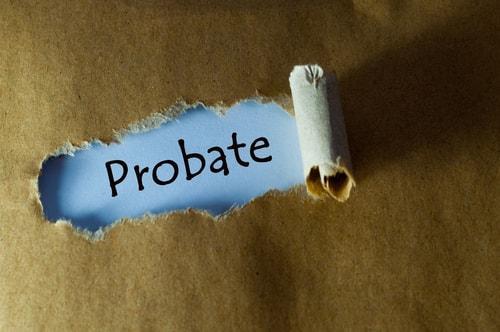Recent Blog Posts
How a Divorce Can Affect Your Estate Plan, Part 3: Powers of Attorney
 Over the last couple of weeks, posts on this blog have discussed how your estate plan could be affected by a divorce. The first post covered your will while the second post talked about the impact of a divorce on certain types of trusts. While wills and trusts are two of the most common estate planning tools, there are others that might need to be updated if you decide to get divorced, including powers of attorney for property or health care.
Over the last couple of weeks, posts on this blog have discussed how your estate plan could be affected by a divorce. The first post covered your will while the second post talked about the impact of a divorce on certain types of trusts. While wills and trusts are two of the most common estate planning tools, there are others that might need to be updated if you decide to get divorced, including powers of attorney for property or health care.
Powers of Attorney
A power of attorney refers to an arrangement in which a person-called the "principal"-gives legal authority to another person-called an "attorney in fact" or an "agent-to make decision on the principal’s behalf. A power of attorney can include a wide range of decision-making responsibilities, but there are two basic types. A power of attorney for property gives the agent the authority to make decisions regarding the principal’s assets, debts, and other property, while a power of attorney for health care allows the agent to act on the principal’s behalf in matters related to health and medical care.
Dissipation of Marital Assets: Knowing When Your Marriage is Breaking Down
 When a couple is getting divorced in Illinois, the law provides that all of the couple’s marital property should be divided in a manner that is fair and just. To determine a “fair and just” allocation of assets, the court will take many factors into account, including each spouse’s age, health, and employability, as well as their contributions to the marital estate. The court must also consider any claims made by either spouse against the other regarding dissipation of marital assets.
When a couple is getting divorced in Illinois, the law provides that all of the couple’s marital property should be divided in a manner that is fair and just. To determine a “fair and just” allocation of assets, the court will take many factors into account, including each spouse’s age, health, and employability, as well as their contributions to the marital estate. The court must also consider any claims made by either spouse against the other regarding dissipation of marital assets.
What Is Dissipation?
The Illinois Supreme Court established a definition for dissipation as “the use of marital property for the sole benefit of one of the spouses for a purpose unrelated to the marriage at a time that the marriage is undergoing an irretrievable breakdown.” Over the years, the state legislature has alternated between including and excluding non-marital property in its definition of dissipation. The most recent version of the law provides that only marital property can be dissipated.
How a Divorce Can Affect Your Estate Plan, Part 2: Trusts
In Part 1 of this series of posts, we talked at length about how a divorce could impact the provisions and enforceability of a person’s will. A will, in many cases, is just one component of a comprehensive estate plan, which means that there are other estate planning instruments that could be affected by a divorce. For example, you may have established one or more trusts to protect and transfer your property to your chosen beneficiaries. The types of trusts that you have set up will determine how they are affected by your divorce.
Revocable Trusts
Illinois law provides that any provisions, appointments, or nominations made regarding a person’s spouse in the person’s will are automatically revoked when a judgment of divorce is issued. The law is similar in regard to trusts but with some important differences. The differences are caused by the nature of certain kinds of trusts and the rules that apply to them.
Navigating a DCFS Adoption in Illinois
Additions to your family can come in many forms, and adoption is one method that is beneficial for both parents and children. One great option for many families is adopting a child through the Illinois Department of Children and Family Services (DCFS). However, a DCFS adoption is a bit different than other types of adoption. Before beginning the process, you should determine if a DCFS adoption is right for you and your family.
DCFS Adoptions Are Unique
One of the basic differences between a DCFS adoption and a private agency adoption is that children who are adopted through DCFS are in the foster care system. According to the Adoption and Foster Care Analysis and Reporting System, there were 117,794 children in foster care throughout the United States who were waiting to be adopted in 2016. Children who are placed in a foster home have been removed from their families for a variety of reasons, including abuse or neglect, which may have resulted in trauma. These children also range in age from babies to teenagers, and if they are available for adoption, their birth parents’ rights have already been terminated.
Avoid These Mistakes During a High Net Worth Divorce
 Sources report that former NBC news anchor Matt Lauer and wife Annette Roque are likely headed for divorce. The news is not surprising considering the events of last November when Lauer, along with several other high-profile men, were accused of sexual harassment in the workplace. Lauer was fired for the alleged inappropriate behavior. Now, it appears that his marriage may also be ending. In the course of his tenure at NBC, Lauer is estimated to have made upwards of $100 million. If the couple does end up divorcing, their extravagant wealth will undoubtedly complicate the process. When high net worth couples divorce, there is much more room for expensive mistakes to be made. If you are considering divorcing your spouse and have complex assets or high net worth, read on to learn common mistakes you should avoid.
Sources report that former NBC news anchor Matt Lauer and wife Annette Roque are likely headed for divorce. The news is not surprising considering the events of last November when Lauer, along with several other high-profile men, were accused of sexual harassment in the workplace. Lauer was fired for the alleged inappropriate behavior. Now, it appears that his marriage may also be ending. In the course of his tenure at NBC, Lauer is estimated to have made upwards of $100 million. If the couple does end up divorcing, their extravagant wealth will undoubtedly complicate the process. When high net worth couples divorce, there is much more room for expensive mistakes to be made. If you are considering divorcing your spouse and have complex assets or high net worth, read on to learn common mistakes you should avoid.
Mistake No. 1: Letting Emotions Guide Your Behavior
Of course, divorce is one of the most emotional things a person can endure. It is completely understandable that spouses feel sadness, regret, anger, resentment, or even vindictiveness. However, when you allow your emotions to be the only basis for your actions during a divorce, the results can be costly. For example, some men and women are so anxious to divorce a spouse they can no longer tolerate that they agree to terms that are not fair to them. It can be tempting to agree to whatever your soon-to-be-ex wants just to hurry along the divorce process, but doing this only increases the chances that you will not receive your fair share of marital property or support. For high net worth couples, this mistake can be extremely expensive.
How a Divorce Can Affect Your Estate Plan, Part 1: Wills
 Most people recognize the importance of having an estate plan in place just in case something unexpected happens. Depending on the size and nature of your estate, a comprehensive estate plan may include a will, various types of trusts, powers of attorney, a living will, and more. Sometimes, however, the unexpected "something" can take the form of a divorce. A divorce can dramatically impact your existing estate plan, so if your marriage will soon be ending, you will need to review and amend nearly every element of your estate plan.
Most people recognize the importance of having an estate plan in place just in case something unexpected happens. Depending on the size and nature of your estate, a comprehensive estate plan may include a will, various types of trusts, powers of attorney, a living will, and more. Sometimes, however, the unexpected "something" can take the form of a divorce. A divorce can dramatically impact your existing estate plan, so if your marriage will soon be ending, you will need to review and amend nearly every element of your estate plan.
Over the next couple blog posts, we will highlight several types of estate planning tools and how they might be affected by your divorce.
Your Will
A last will and testament is one of the most basic elements of an estate plan. In your will, you are able to record your wishes regarding the distribution of your assets, guardianship of your minor children, and more. You can also name an executor who will be responsible for managing your estate during the probate process.
4 Reasons to Consider a Collaborative Divorce
 When you think of the word divorce, you probably think of scenes in movies and television with couples screaming at each other over their issues and sitting in the courtroom while a judge decides their fate. However, the reality is that many couples seek a calm and refined dissolution of their marriage--this is where collaborative divorce comes in.
When you think of the word divorce, you probably think of scenes in movies and television with couples screaming at each other over their issues and sitting in the courtroom while a judge decides their fate. However, the reality is that many couples seek a calm and refined dissolution of their marriage--this is where collaborative divorce comes in.
What Is Collaborative Divorce?
Collaborative divorce is a way that a couple can get divorced without the stress or intervention of the court system. The point of collaborative law is to avoid litigation and keep control over the outcomes of certain divorce issues, such as the division of assets and property, child custody and support agreements, and spousal maintenance. Each spouse will work with their own attorney who is trained in collaborative law, in addition to a team of professionals from different fields to come to an agreement. The process begins when the couple and their attorneys sign a legally binding contract--called a participation agreement--to agree to resolve their marital disputes outside of the courtroom.
Sharing Important Decisions Regarding Your Child
 If you are a parent and are unmarried, separated, or divorced, you probably already know that sharing parenting responsibilities is not always easy. When parents disagree about how their child should be raised, conflict can arise which is not in the best interest of the child. Incompatible parenting styles can create unnecessary tension and complication in your family. One of the best ways to avoid conflict when in a shared parenting scenario is to sit down with the other parent and create a parenting plan or parenting agreement. A parenting plan can clearly designate each parent’s role in making important decisions about the child’s life.
If you are a parent and are unmarried, separated, or divorced, you probably already know that sharing parenting responsibilities is not always easy. When parents disagree about how their child should be raised, conflict can arise which is not in the best interest of the child. Incompatible parenting styles can create unnecessary tension and complication in your family. One of the best ways to avoid conflict when in a shared parenting scenario is to sit down with the other parent and create a parenting plan or parenting agreement. A parenting plan can clearly designate each parent’s role in making important decisions about the child’s life.
Significant Decision-Making
The term “significant decision-making” refers to “deciding issues of long-term importance in the life of a child.” The Illinois Marriage and Dissolution of Marriage Act outlines some decisions that are considered significant, including:
Clarifying the Purpose of Probate
 The term “probate” refers to the legal proceedings which deal with a deceased person’s assets and debts. The probate courts are tasked with determining the validly of the decedent’s will, if he or she has one. If he or she did not have a will, the court will need to have much more involvement in the estate administration. There is a bit of confusion about probate, and many people are not sure what exactly it is. Read on to learn the answer to the most frequently asked questions regarding the probate process.
The term “probate” refers to the legal proceedings which deal with a deceased person’s assets and debts. The probate courts are tasked with determining the validly of the decedent’s will, if he or she has one. If he or she did not have a will, the court will need to have much more involvement in the estate administration. There is a bit of confusion about probate, and many people are not sure what exactly it is. Read on to learn the answer to the most frequently asked questions regarding the probate process.
What Happens During Probate?
There are several things which typically happen during probate. If the decedent had created a will before he or she died, the judge will verify that it is a valid will. A will can be invalidated or thrown out if it is not signed by the testator (deceased person) and at least two witnesses, was forged, or if the testator created the will under undue influence. A will can also be invalidated if a newer will is discovered. Next, the judge will appoint an executor responsible for managing the estate. If the decedent had a will, the judge will appoint the individual named in the will. If there is no valid will, the judge will often appoint the next of kin as the executor. The executor is responsible for paying the deceased person’s final bills, notifying creditors of the decedent’s death, filing income taxes on behalf of the decedent, distributing assets to heirs according to the will, and more.
Illinois Prenuptial Agreements 101
 When you are engaged, there are so many things to talk about--the honeymoon, the dress, the reception--but one of the not-so-fun things that you should discuss is getting a prenuptial agreement, or prenup. Doing so may save you in the event your marriage does not work out.
When you are engaged, there are so many things to talk about--the honeymoon, the dress, the reception--but one of the not-so-fun things that you should discuss is getting a prenuptial agreement, or prenup. Doing so may save you in the event your marriage does not work out.
What Is a Prenup?
A prenuptial agreement is a contract that a couple signs prior to getting married that lays out terms for how certain matters will be handled in the event of a divorce. The agreement may state how couples will split their finances, what each person owns coming into the marriage, and how property acquired during the marriage would be divided. A prenup can cover everything from debt to retirement funds and how those are allocated.
Reasons to Get a Prenup
There are many different reasons that couples decide to get prenups. Some people may think that it dooms a marriage from the beginning, but many have found that it protects their assets in the event that things do not work out. Some common reasons why couples get prenups are:












